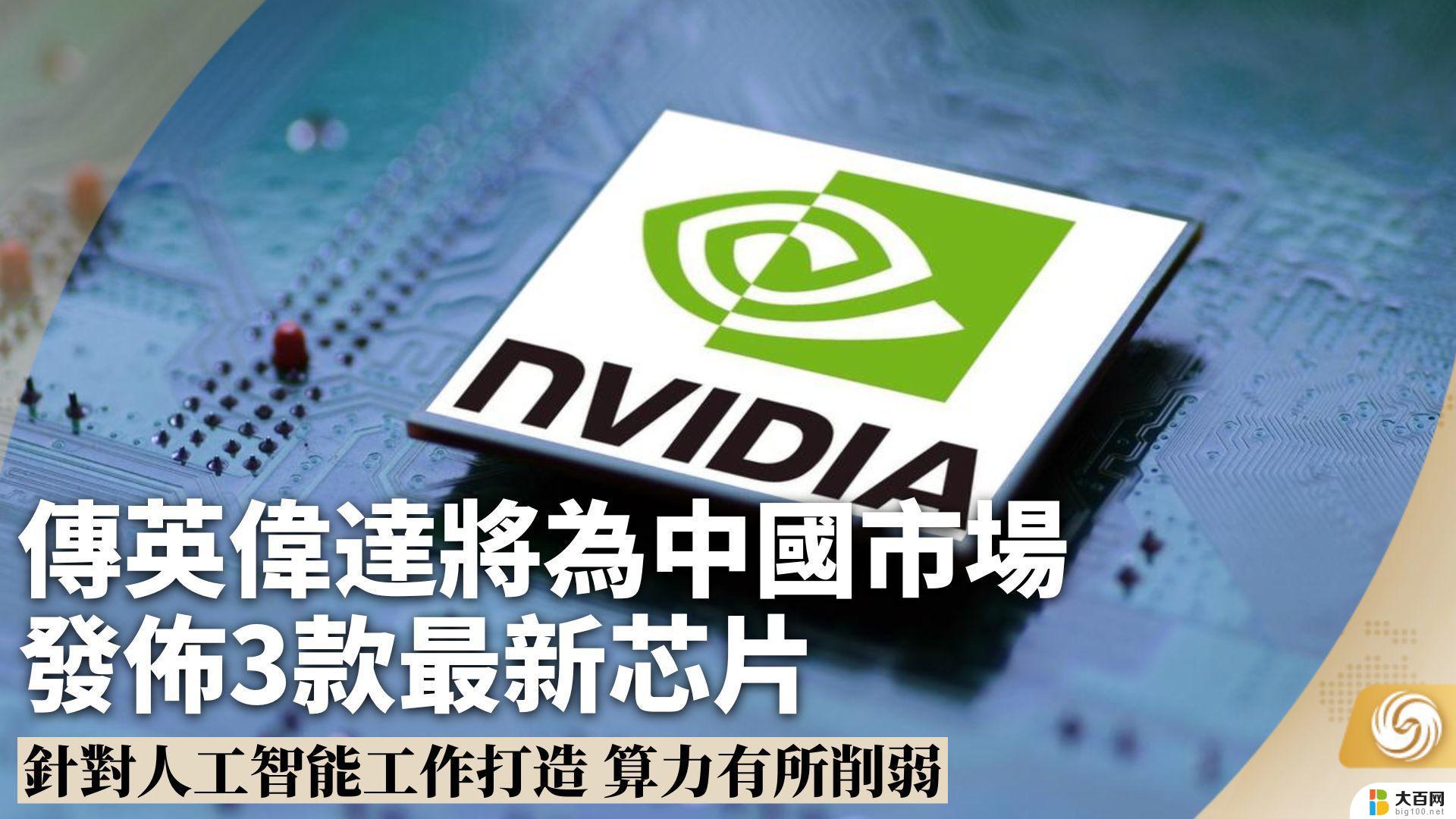Nvidia为中国市场准备新旗舰人工智能芯片版本

Nvidia plans to collaborate with Inspur, a major distributor partner in China, for the launch and distribution of the chip, tentatively named the "B20," according to two sources. Shipments of the "B20" are expected to commence in the second quarter of 2025.
The AI chip giant introduced its "Blackwell" chip series in March, which is scheduled for mass production later this year. These new processors feature two silicon squares, each the size of the company's previous models. Within this series, the B200 chip is touted to be 30 times faster than its predecessor in certain tasks, such as responding to chatbot queries.
Nvidia CEO Jensen Huang indicated in March that AI chips based on the Blackwell architecture are expected to begin deliveries in the second quarter, with scaled deliveries in the third quarter. By the fourth quarter, data centers will be able to run on these new products, which are anticipated to generate substantial revenue for Nvidia this year. Huang also highlighted a continued strong demand for AI computing power, with growing needs for the previous Hopper architecture products.
In 2023, Washington tightened its controls on the export of advanced semiconductors to China, aiming to prevent technological advancements in supercomputing that could benefit China's military. In response, Nvidia has developed three chips specifically tailored for the Chinese market.
The stricter U.S. export controls have enabled Chinese tech giant Huawei and startups like Tencent-backed Enflame to make significant progress in the domestic market for advanced AI processors. A version of Nvidia's Blackwell series chip for the Chinese market would strengthen the U.S. firm's position against these competitors.
Due to U.S. sanctions, China accounted for approximately 17% of Nvidia's revenue in the fiscal year ending in January, down from 26% two years earlier. Nvidia's most advanced chip for the Chinese market, the H20, initially experienced a slow start when deliveries began this year. Reuters reported in May that Nvidia priced it below a competing chip from Huawei. However, sales of the H20 have recently seen rapid growth, according to two of the sources.
Nvidia is projected to sell over one million H20 chips in China this year for more than $12 billion, based on estimates from research group SemiAnalysis.
Earlier reports noted that due to higher memory capacity, the H20 chip is more costly to manufacture than the H100, resulting in a price that is about half of the H100, with Nvidia accepting a compromise on profit margins. Renowned investment bank Morgan Stanley has also highlighted the strong demand in China, emphasizing that Nvidia cannot afford to forgo the revenue from H20 chip sales.
Huang has assured that Nvidia’s special version of AI chips will fully comply with U.S. export control requirements while aiming to optimize Nvidia’s presence and business in China.
Expectations remain high that the U.S. will continue to enforce stringent semiconductor-related export controls. The U.S. is reportedly urging the Netherlands and Japan to further limit the export of chipmaking equipment to China. Additionally, the Biden administration has preliminary plans to implement regulations around the most advanced AI models, which form the core software of AI systems like ChatGPT.
Last week, chip stocks globally declined after Bloomberg News reported that the Biden administration was considering a measure called the foreign direct product rule. This rule would enable the U.S. to halt the sale of a product if it was manufactured using American technology.
Nvidia为中国市场准备新旗舰人工智能芯片版本相关教程
- 人工智能芯片竞争加剧,英伟达还“有戏”吗?- 英伟达在人工智能芯片市场的竞争地位如何?
- 英伟达H20新GPU芯片预计2024年上市,国产厂商联手备战,内存市场迎涨价潮
- 美国商务部长改口,NVIDIA可卖芯片,中国可能不购买
- NVIDIA垄断GPU市场20年,无人能敌
- 高通公司正在为Windows PC开发低成本版骁龙芯片,助力PC市场创新发展
- 英国批准微软与Inflection AI的交易:市场竞争不受影响
- NVIDIA AI芯片延迟发布遭双重打击,花旗下调股价预期
- 微软人工智能新闻聚合:假新闻和嘲笑逝者问题曝光
- 科技部等10部门联合印发科技伦理审查办法(试行),微软下月推出首款人工智能芯片
- 消息称英伟达今年将交付超100万颗H20 AI芯片,助力人工智能行业发展
- 国产CPU厂商的未来较量:谁将主宰中国处理器市场?
- 显卡怎么设置才能提升游戏性能与画质:详细教程
- AMD,生产力的王者,到底选Intel还是AMD?心中已有答案
- 卸载NVIDIA驱动后会出现哪些问题和影响?解析及解决方案
- Windows的正确发音及其读音技巧解析:如何准确地发音Windows?
- 微软总裁:没去过中国的人,会误认为中国技术落后,实际情况是如何?
微软资讯推荐
- 1 显卡怎么设置才能提升游戏性能与画质:详细教程
- 2 ChatGPT桌面版:支持拍照识别和语音交流,微软Windows应用登陆
- 3 微软CEO称别做井底之蛙,中国科技不落后西方使人惊讶
- 4 如何全面评估显卡配置的性能与适用性?快速了解显卡性能评估方法
- 5 AMD宣布全球裁员4%!如何影响公司未来业务发展?
- 6 Windows 11:好用与否的深度探讨,值得升级吗?
- 7 Windows 11新功能曝光:引入PC能耗图表更直观,帮助用户更好地监控电脑能耗
- 8 2024年双十一七彩虹显卡选购攻略:光追DLSS加持,畅玩黑悟空
- 9 NVIDIA招聘EMC工程师,共同推动未来技术发展
- 10 Intel还是AMD游戏玩家怎么选 我来教你双11怎么选CPU:如何在双11选购适合游戏的处理器
win10系统推荐
系统教程推荐
- 1 win11文件批给所有权限 Win11共享文件夹操作详解
- 2 怎么清理win11更新文件 Win11清理Windows更新文件的实用技巧
- 3 win11内核隔离没有了 Win11 24H2版内存隔离功能怎么启用
- 4 win11浏览器不显示部分图片 Win11 24H2升级后图片无法打开怎么办
- 5 win11计算机如何添加常用文件夹 Win11文件夹共享的详细指南
- 6 win11管理应用权限 Win11/10以管理员身份运行程序的方法
- 7 win11文件夹内打开图片无预留 Win11 24H2升级后图片无法打开怎么办
- 8 win11访问另外一台电脑的共享文件夹 Win11轻松分享文件的方法
- 9 win11如何把通知关闭栏取消 win11右下角消息栏关闭步骤
- 10 win11安装更新0x800f081f Win11 23H2更新遇到错误代码0x800f081f怎么处理